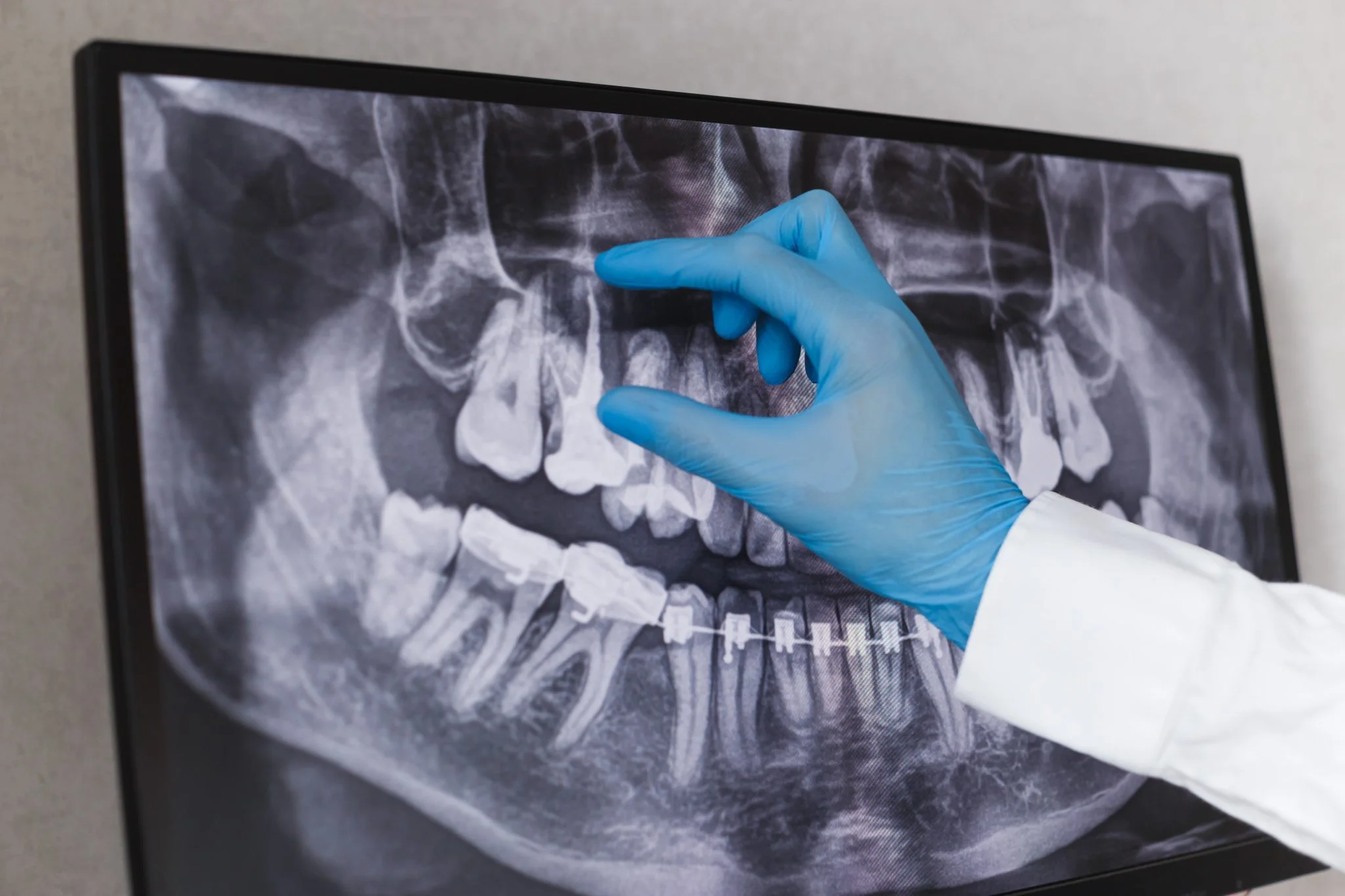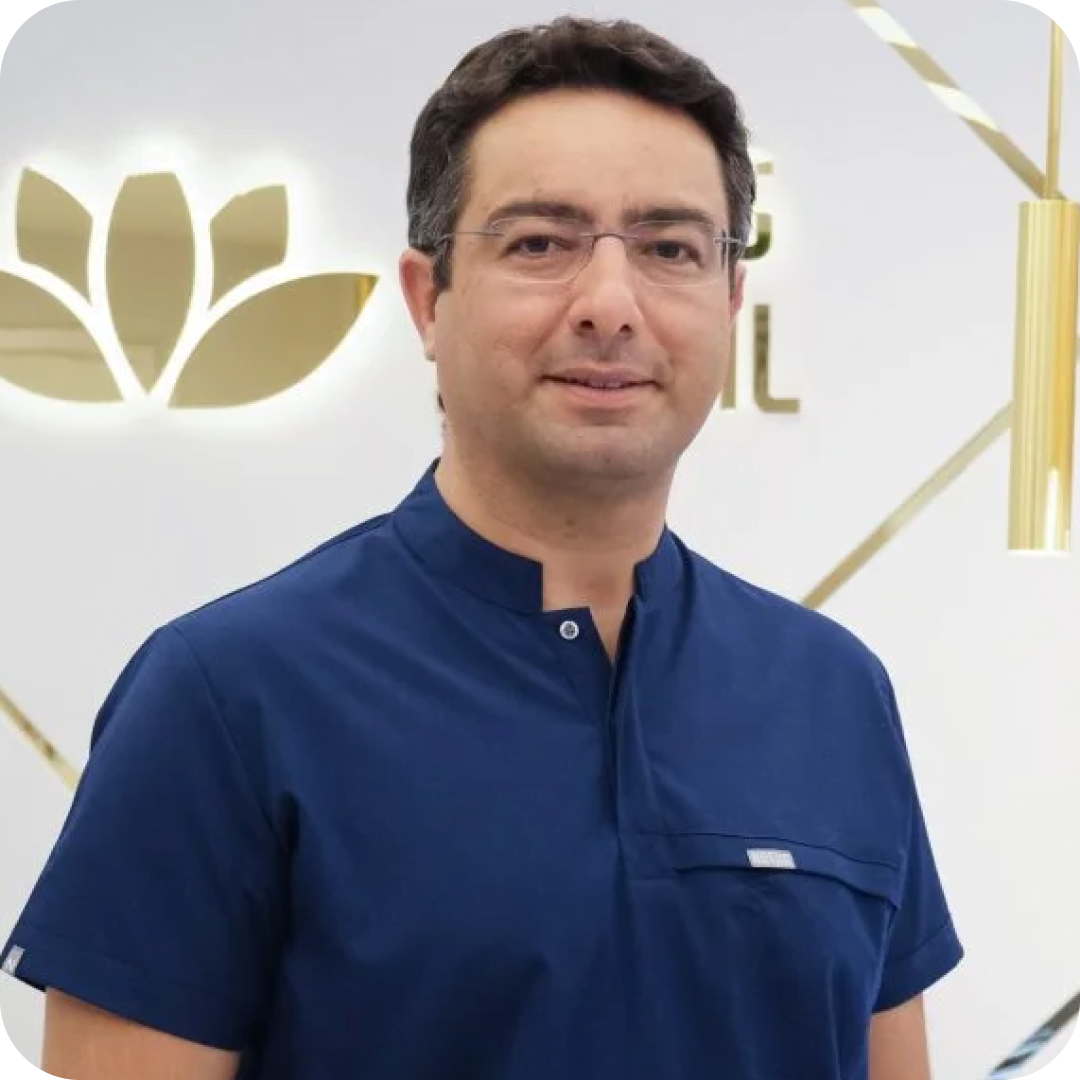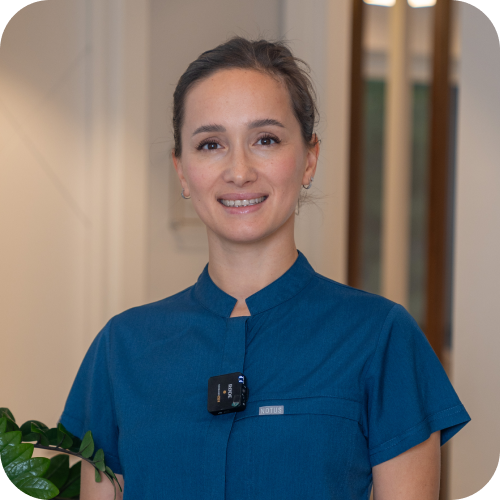In which case is root canal treatment performed?
There is dentin tissue under the outermost hard enamel tissue of the tooth and pulp tissue under it. The pulp starts from the crown of the tooth and continues inside the roots until the root tip. It provides the vitality and nervous stimulation of the tooth thanks to its blood vessels and nerves.
Caries, cracks/fractures, chemical or physical factors can threaten the vitality of the pulp tissue. Like every living tissue, the pulp has the ability to regenerate itself. Small caries or cracks can cause cold/heat tooth sensitivity. In this case, treatments can be performed to preserve the vitality of the tooth by taking advantage of the pulp’s ability to heal. Tooth sensitivity (sensitive teeth) treatments and composite fillings are examples of these.
If the regeneration capacity of the pulp tissue, which is the living part of the tooth, is exceeded with the increase in the severity of external factors, irreversible pulp inflammation called ‘Irreversible Pulpitis’ begins and the vitality of the tooth is lost over time.
In this process, patients begin to feel severe, sometimes triggered by heat and throbbing pain that exceeds the description of mild sensitivity. It is no longer possible to preserve or restore the vitality of the tooth with the treatments to be performed at this stage.
With dental root canal treatment, the inflamed pulp tissue is removed from the tooth, preventing the infection from progressing and spreading around the root. If treatment is not performed at this stage, the inflammation begins to affect the surrounding tissues and the intensity of the pain increases due to the pressure inside the tooth.
In cases where the infection progresses too fast or treatment is delayed, the infection spreads around the root and swelling (tooth abscess) may occur in the tissues around the tooth. After this stage, it is still possible to recover with root canal treatment, but the treatment can be performed in multiple sessions rather than in a single session.
Is there pain after root canal treatment?
It is normal to have a mild to moderate pain in the tooth for the first one or two days after root canal treatment.
However, it is not expected that this pain will last longer. However, it is not expected that a tooth that has undergone root canal treatment without pain will start to ache and develop inflammation in this tooth.
In such cases, the relevant teeth are x-rayed and the root canal treatment is repeated if necessary.
In repeated root canal treatment, the previous filling and root canal treatment must first be removed from the area. Thus, the area in need of root canal treatment is reached. After the inflammation in the area is cleaned, canal filling and top filling are performed again.
This treatment is technically more complicated than performing root canal treatment on a tooth from scratch. Therefore, it should be carried out more precisely.
Kusadasi Endodontics: Lotus Dental Clinic
Today, with modern dentistry practices, almost all teeth can be treated with root canal treatment. In fact, 90% of treatments can be completed in a single session.
Applying for treatment before the infection progresses makes the treatment simpler and shorter, as well as less costly. For this reason, when the first symptoms such as small cavities, cracks, cold/hot sensitivity begin, you should consult to your dentist.
In some cases, non-painful, invisible, asymptomatic infections can develop in or around the pulp of the tooth. Such chronic infections usually occur in previously treated or traumatized teeth.
Such infections can be easily detected by periodic radiographic imaging. In addition to intraoral examination, the symptoms of chronic infections can be diagnosed with panoramic radiographs taken at the periods recommended by your dentist, and then more detailed periapical radiographs if necessary. Like acute infections, chronic infections also need to be treated.
Almost all chronic infections and even most of the cysts arising from the tooth can be cured with root canal treatment.




